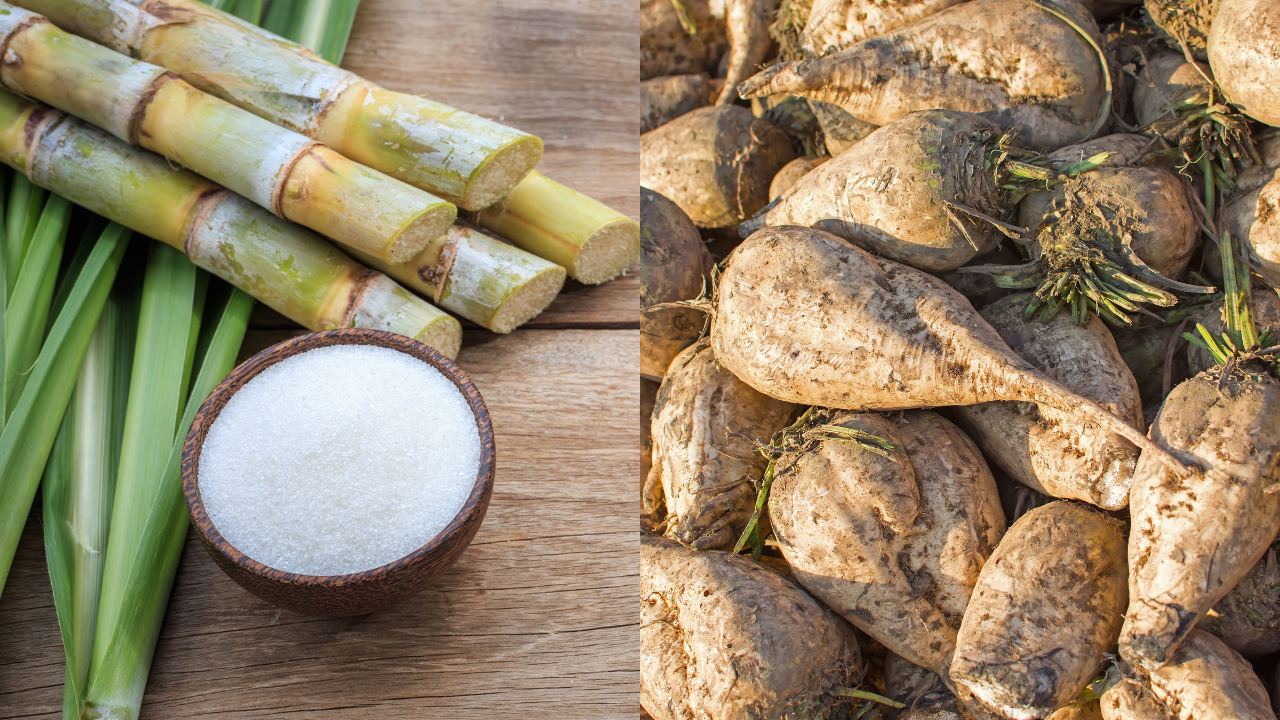Exploring the Differences being used and Advantages In Between Beet Sugar Vs Cane Sugar
In the culinary world, the selection in between beet sugar and cane sugar is not just concerning sweetness however entails a nuanced factor to consider of flavor, application, and influence. While both sugars stem from different plants, each goes through distinct production processes that subtly affect their qualities and viability for different meals. As cooks and consumers increasingly prioritize both the ecological and flavor profiles of their ingredients, understanding these differences ends up being critical. This expedition provides insight into exactly how each sugar kind can best boost cooking creations.
Origins and Manufacturing Procedures of Beet and Cane Sugar

Walking cane sugar, on the various other hand, comes from the sugarcane plant, a tropical turf indigenous to Southeast Asia yet currently cultivated in tropical zones worldwide - beet sugar vs cane sugar. The production of cane sugar begins with the harvesting of cane stalks, which are crushed to launch the juice.

Nutritional Material and Health Considerations

When comparing the dietary material of beet sugar and cane sugar, it becomes evident that both types essentially provide the same caloric values, with around 16 calories per teaspoon and no considerable nutrient variety. Both sugars, when consumed in excess, can add to raised blood glucose levels, a danger aspect for diabetes mellitus and various other metabolic problems. From a health viewpoint, moderating consumption of any type of sugar, whether from beet or cane, is suggested to prevent these potential adverse impacts on wellness.
Flavor Accounts and Culinary Applications
Regardless of their comparable chemical structures, beet sugar and cane sugar differ subtly in flavor, which can influence their use in different cooking contexts. Cane sugar typically brings a tip of molasses, even in its polished form, providing a warm, caramel-like touch that boosts baked click here for info products, coffee, and chocolate-based dishes. On the other hand, beet sugar is identified by its very fine-tuned, neutral taste, making it a versatile sugar that does not alter the taste accounts of meals.
Ecological Influence and Sustainability
While both beet and cane sugars are derived from plants, their ecological effects differ significantly due to the distinct techniques of growing and handling needed for each. Sugar beet growing typically involves comprehensive automation, which can enhance fossil fuel usage and carbon emissions.
In addition, the processing of sugarcane usually creates a substantial amount of waste, consisting of bagasse, which, although useful as biofuel, regularly adds to air pollution if burned inefficiently. Sugar beet handling utilizes more of the raw materials, resulting in much less waste. Both sectors face challenges in lowering their her latest blog ecological impacts, but ongoing advancements in agricultural techniques and waste management are intending to improve sustainability.
Economic Factors Influencing the Sugar Sector
The economic characteristics of the sugar sector are dramatically influenced by international market demands and trade policies. Aspects such as tolls, subsidies, and international profession contracts play crucial duties in shaping the affordable landscape. For instance, in areas where sugarcane or sugar beet production is subsidized, manufacturers might have a financial advantage that enables them to use lower rates on the international market. This can develop disparities in profitability and market gain access to for producers in countries without such subsidies.
Additionally, variations in international demand for sugar, affected by nutritional patterns and commercial use in food items, directly impact prices and manufacturing levels. beet sugar vs cane sugar. Weather also play a pivotal function, as they can significantly influence crop returns and, consequently, the supply chain. This variability presents a level of financial uncertainty that can result in investment volatility in sugar manufacturing markets, affecting choices from growing to market method
Conclusion
In verdict, both beet and cane sugar have check unique top qualities that fit various cooking needs. While cane sugar conveys an abundant flavor perfect for enhancing baked items, beet sugar's nonpartisanship is perfect for lighter dishes.
Comments on “The refining process of beet sugar vs cane sugar varies, affecting the final product’s appearance.”